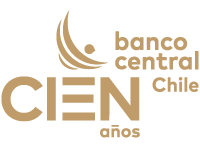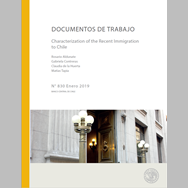Working Papers N° 839: On Corporate Borrowing, Credit Spreads and Economic Activity in Emerging Economies: An Empirical Investigation
Publications
Working Papers N° 839: On Corporate Borrowing, Credit Spreads and Economic Activity in Emerging Economies: An Empirical Investigation
Autor: Julián Caballero , Andrés Fernández , Jongho Park
Description
We document a considerable increase in foreign financing by the corporate sector in emerging economies (EMEs) since the early 2000s, mainly in the form of bond issuance, and claim that it has opened up an important channel by which external financial factors can drive economic activity in these economies. Such claim is substantiated by a strong negative relationship between economic activity and an external financial indicator that we construct for several EMEs using micro-level data on spreads of bonds issued by EMEs’ corporations in foreign capital markets. Three salient features characterize such a negative relationship. First, the financial indicator has considerable predictive power on future economic activity in these economies, even after controlling for other potential drivers of economic activity such as movements in sovereign spreads and global financial risk, among others. Second, on average, an identified adverseshock to the financial indicator generates a large and protracted fall of real output growth in these economies, and up to 14 percent of its forecast error variance is associated to this shock. Lastly, fluctuations in this indicator also respond strongly to shocks in global financial risk emanating from world capital markets thereby implying that changes in corporate spreads also serve as a powerful propagating mechanism to changes in global investors’ risk appetite.
Working Papers N° 839: On Corporate Borrowing, Credit Spreads and Economic Activity in Emerging Economies: An Empirical Investigation
Boxes and graphics

